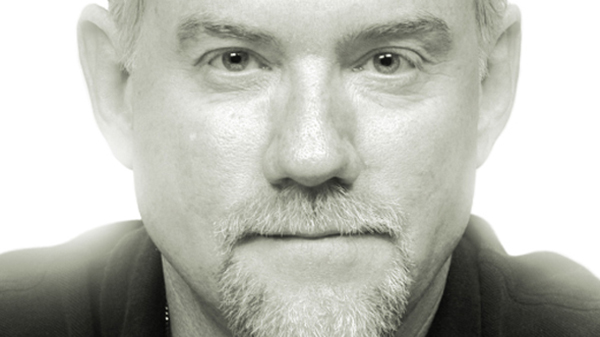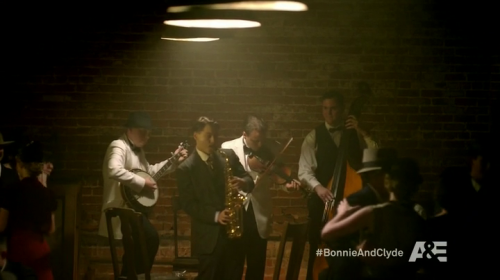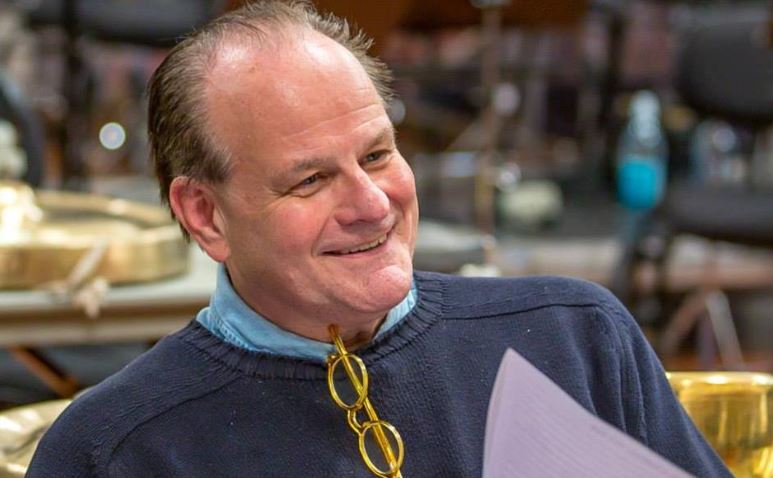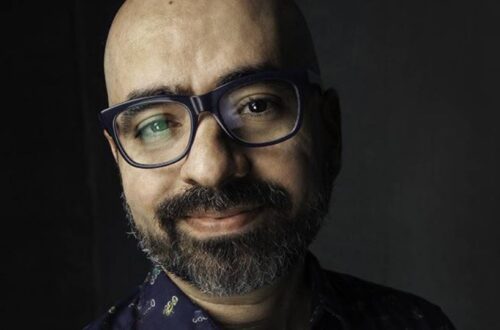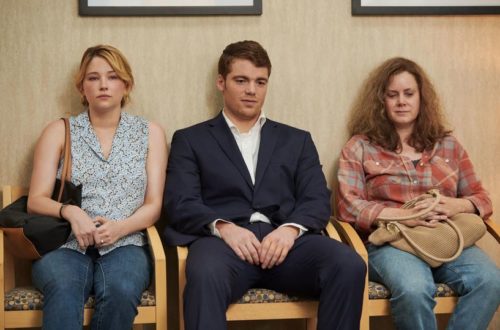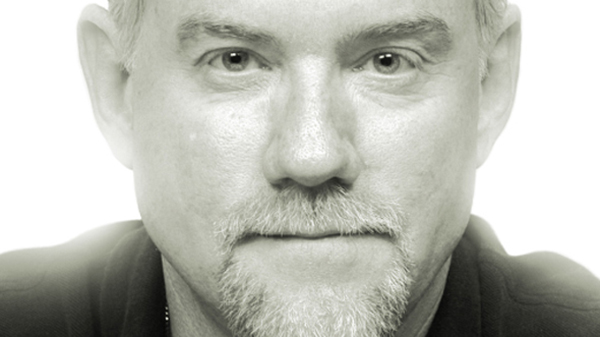 Combining contemporary sounds, dustbowl folk, and jazz, film composer John Debney captures and compliments the drama and exhilaration in A&E Networks’ Bonnie & Clyde. Debney’s score blends modern electronic elements with classic orchestral sounds evocative of the period to help tell the story of America’s famed and iconic bank-robbing couple, played by Emile Hirsch and Holliday Grainger. The robust soundtrack perfectly underscores Academy Award nominated director Bruce Beresford’s epic TV adaptation.
Combining contemporary sounds, dustbowl folk, and jazz, film composer John Debney captures and compliments the drama and exhilaration in A&E Networks’ Bonnie & Clyde. Debney’s score blends modern electronic elements with classic orchestral sounds evocative of the period to help tell the story of America’s famed and iconic bank-robbing couple, played by Emile Hirsch and Holliday Grainger. The robust soundtrack perfectly underscores Academy Award nominated director Bruce Beresford’s epic TV adaptation.
John Debney has a proven ability to create memorable music across a variety of genres, and has garnered a reputation of being remarkably collaborative. He has received numerous accolades for his talents and Debney is the youngest recipient of ASCAP’s prestigious Henry Mancini Career Achievement Award. Variety named Debney the “Billion-Dollar Composer of the Year,” highlighting his tremendous box office successes, including The Passion of the Christ, Elf, Bruce Almighty, The Princess Diaries 1 & 2, Spy Kids 1 & 2, Sin City, and Iron Man 2.
Enjoy the entirety of our session with versatile and prolific film composer John Debney.
GST: I don’t think you can equate a specific sound to a comedy but in my opinion Liar Liar is a definitive comedy score. I don’t know how highly you regard that film but I love it a lot and the score even more.
JD: Oh, I do love it and it’s funny because it was just on TV this weekend. It was really fun writing music for it but thank you, I am really glad to hear you say that. People always tend to say that they love that score, Elf too actually, and I’m just so gratified to know that they still enjoy it.
GST: You’ve worked with a multitude of directors and it’s easy to be pigeonholed as the “horror guy” or the “action guy”, but your music is attached to a broad spectrum of films; you’re like a chameleon and that’s probably the best attribute of a composer right, professional diversity? Sometimes I find myself watching something and go “Wow, John Debney did that…it doesn’t even sound like him“.
JD: Well I try and as an artist you always want to go for something new and different. I’ve been really lucky because I’ve been given these opportunities to write different kinds of things like Liar Liar or Iron Man 2 and it’s been really fun so I appreciate you saying that. *laughs*
GST: Well thanks for writing great music! *laughs* So speaking of going in different directions and trying new things, there are all types of musical styles and genres in this miniseries, so what about Bonnie & Clyde made you want to take this project?
JD: I had been a big big fan of Bonnie and Clyde my whole life, and when I heard about this show I
was actually the one who pursued it. Sometimes you get phone call from your agent and they’ll put you up for things but in the case of Bonnie & Clyde I had read about this months before and I told my agent to get me a meeting with the producers because I was so passionate about their story.
I’m a history buff and I’ve been a fan of them my whole life so when I was finally able to talk to the producers I think they saw that I really was passionate about this and my pitch because they were very receptive to what I was saying. So what appealed to me, and still does, is the story of these two young people who were romantically and lustfully in love and yet because of the times they were in and The Great Depression they got into doing bad things – robbing convenience stores and banks. Not that it’s a romantic story but it’s certainly an iconic one and it appealed to me on all levels.
I also just love the music of the period. So the thought of being able to create the jazz-influenced score with a chance to give it an updated feel was very, very interesting to me.
GST: It’s funny you should mention ‘updated’ because some of the score has some modern elements that you don’t associate with the time period. A portion of the of the main titles/intro credits have kind of this tribal drum beat but then it also delves into this almost, at times, techno-thriller vibe that I’m guessing is to represent Frank Hamer and the law’s pursuit of Bonnie and Clyde. But what kept it interesting and made it exciting was it wasn’t all ragtime, or swing music. It ran the gamut from fun and upbeat music, using banjos and violins, but then you get these cool steel guitars and trumpets and it just kept morphing.
JD: Good, I’m glad you think so. We meant to do it that way and we really tried to do
something that was a little outside of the box moving from scene to scene, especially with all those montages. For instance, we had a great brass section and so I would record them, then sample the track and tweak it and use the sound in very strange ways so it really became a hybrid score by taking something and turning it on its ear and throwing in something, like the tribal beats you mention, just to make it a bit different and maybe more contemporary.
GST: Were the director or producers open to that, or did you have to sell him on some of these ideas?
JD: I was blessed with having a really cool director, Bruce Beresford is an incredible guy and a very collaborative director. When I started talking to him about the concept, I’m sure he was wondering what it might sound like but invariably when we came into studio and he started working closely with me he ended up loving it. We sort of came up with the sound together. In fact, he mentioned at various times that there were things we tried that he would have never even thought of doing but it ended up working out really great.
GST: As you’re a history buff, when it comes to doing something like this, what kind of research do you do? Do you study the time period and, if it’s historical like this, the people or just study the musical styles?
JD: Great question. I always have to do a quick study of different genres or time periods and certainly it was the same with this one. Although, I sort of went into this already loving jazz and
that period, but I also really wanted to familiarize myself with some of the source pieces.
That said, what you hear on the CD and in the show isn’t actually sourced from the time. It’s all original, but they are inspired by source music you would hear on the radio from that era. So that was a fun part of the score – creating source that sound like they’re from the ’30s. But then there’s the other part of that which is the score itself and that was me being able to go where I wanted to go to make it sound reflective of the time.
That was exciting for me because it was made to sound like it was influenced by the era, but it didn’t owe anything to it, which is to say it didn’t have to adhere to any boundaries if you know what I mean. It was a study of the period, but it was my interpretation of it. I’ll give you an example – we took this one pretty cool piece of swing music and then we filtered it and did things in the mix that turned it on its ear. You definitely wouldn’t have heard that from the period but it helped give it a slightly contemporary feel.
GST: Source music is one thing, but can you tell me about how you handle scenes where there are people either pretending to or actually playing instruments? Do you ever teach actors how to play an instrument correctly?
I ask because of two different scenes in particular: one is where Emile Hirsch is playing saxophone – did he actually play the sax? Also in the square dance scene, similarly, are the musicians playing their music or do you lay something over them?
JD: In this case, all of that was done afterwards. In some cases, when there’s enough time, and you are hired early enough you can actually create those pieces and then the musicians or actors can play to them. But in this case we didn’t really have the time and I was hired later in the process so I had to add music to what was shot. Now with Emile Hirsch, who by the way did a very good quick study on what a saxophone player looks like when he’s playing, I had to sort of mimic and match what he was doing. Luckily he had done his homework so it wasn’t that difficult to come up with something that matched his fingering and movements but in the case of the square dance there was a lot of, what looked like, live music being played. The band itself on camera was listening to and, in most cases, playing something from the time.
My job there was to add that portion of the apparent “source music” in the same tempo as the musicians and I just followed the lines of what they were doing. In instances where there’s a close up of a guy with a banjo or something like that it has to be paid a little closer attention and matched up more precisely and we’ll engineer all those little pieces so everything makes sense when it’s on camera. That’s common to what composers do and other times we end up recreating things that sometimes the producers wanted to get rights to but couldn’t, so it really varies.
GST: So I guess every composer fears that day they’ll get handed a rush and find someone like Dooley Wilson playing the piano in Casablanca. He’s not even hitting the keys! *laughs*
JD: *laughs* Wow, great example! *laughs* But you’re absolutely right, if they are shooting people who aren’t musicians it could be very daunting. In the case of Bonnie & Clyde these were all local musicians so they more or less knew what they were doing and were playing to a certain beat. But it can be extremely difficult especially if you’re dealing with someone who is playing or singing and they really aren’t even that close to what they’re trying to achieve.
GST: Bonnie & Clyde is billed as a miniseries, but if you look at the run-time this is pretty much two movies. So regarding your approach to it, did you score it like a TV show, or did you score it like you would a movie? Or better, does the medium in which it is to be presented and therefore produced have any bearing on your approach?
JD: In the case of Bonnie & Clyde I would say it was more like writing for, like you said, two full-length movies back to back. What they share in common are all the themes that you write for the different characters. But it is a bit of a grind and especially arduous to write material for a 4, 6 or 8 hour miniseries where you are writing a whole lot of music with lots of different themes and trying to weave it all
into a whole. The biggest thing that becomes a concern during a production, and it played a role in Bonnie & Clyde, was the idea of “audience fatigue”.
I’m very cognizant of it and I try to give filmmakers my opinion about where to have music and where not to have it. Luckily, in this case, I had a great director who really listened and I think there were spots where we actually took music out because we didn’t need it so that the end result is very balanced and therefore I think it makes for a better audience experience. If you think about it, they are watching it over the course of two nights and the goal was not overwhelm them with music.
In the case of Bonnie & Clyde, night one was much more exposition. There was a lot of explaining who these people were, and night two, quite frankly, was sort of a ride. It was an action-oriented journey that was fast and delved deep into what happened to these two, how bad they became, and ultimately their demise. So they were different experiences, both nights, but they are related so you have to make sure they speak to each other because they’re not stand alone pieces.
GST: One school of thought is for composers to write their main themes and then do variations of them. But something like this, because it tells a big story and especially the way it’s presented with commercials and all, I can see how your goal was not to wear out the audience. I think what you did was you give the series a lot of different themes and cues that were scored specifically to emphasize key events, as opposed to having this one grand theme that kind of does a Lawrence of Arabia sweep across the picture. That kept it lively – heightening the things that needed to be heightened.
JD: Well that’s a great point, and I think an important one too. In a lot of long-form television, if you’re using only one main theme and using the same music in every scene it does get muddled so in the case of
Bonnie & Clyde we really tried to vary it up as much as possible and make it interesting. You have the influences, obviously the place in time but also the geography as well. Early on, Bonnie and Clyde spend a lot of time in Texas and so you have a lot of Texas flavors with guitars and fiddles and country rural flair and then I think there’s a progression as they move around and grow as individuals.
As their relationship and their love affair starts to progress the music becomes a little more jazz-based in night one but then in night two, when all hell breaks loose, it gets more aggressive and becomes more of a hybrid infused with different rhythms, world rhythms or more contemporary beats that come together. Ultimately at the very end of the show, during the ambush, all these sounds come in and replay themselves – you get a little southern guitar mixed with the mournful trumpet and the angst-ridden strings. That kind of encapsulates what the journey was for me musically, a blend of a lot of these different textures to make it a whole.
GST: That term you just used, the “mournful trumpet”. I’m a big fan of Thomas Newman and specifically a great but rather underrated score he did for a movie called The Salton Sea starring Val Kilmer. The score uses a lot of these, as you call it, mournful sounds – real long, drawn out cues played on the trumpet. Come to think of it, John Barry also did something similar on one of his older themes. But there’s just something about that sound on your score for this show and I just love what you did with it. It fit the series very well.
JD: That means a lot to me, I really appreciate you saying that. It was important to me to have that on the show. There was a great trumpet player I used, a real world-class musician and an amazing guy. He came in and we talked about it for a second and the idea was that this instrument and that long line trumpet playing has this soulful quality to it. It’s very mournful and gives you this sense of fate. That’s really what I was going for, and I
told the trumpet player that neither Bonnie nor Clyde know what’s coming. We do as an audience and so I tried to introduce it as early as possible. That trumpet is really brought in to hint that the star-crossed lovers are going to join the pages of history and we are going to watch that happen.
So when you hear the trumpet, especially in some crucial places in the show, I think it gives you that feeling of inevitable fate. I think it’s important to note that this is all from Clyde’s point of view and that trumpet, to me, sort of exemplifies the spirit of Clyde. In other words, he just fell in love with this woman and throughout the miniseries, especially the way Emile Hirsch delivers his lines, you feel the emotion in his voice-overs.
When you hear his narration there’s a real sadness to everything he’s saying. Also there’s a sort of a fatalistic feeling to it and so I thought the trumpet and that style of playing really hit the tone I was aiming for. I think ultimately, hopefully, it gives the audience the feeling that Clyde truly was fated to meet Bonnie and they were fated to become the iconic criminals we’ve become fascinated by over time. There’s always nuance to every story, and these two were no different, but things just continually got out of control and sent them to their disastrously famous ending.
GST: You’ve had a hand in some colossally successful and really beloved films, like you said Jon Favreau’s Elf and Mel Gibson’s The Passion of the Christ. Critical acclaim is one thing, box office success is another, but as a composer and an artist is there one thing on your resume that you’re just so glad to have worked on?
JD: Boy, that’s a terrific question. There are a few scores that are near and dear to my heart that didn’t necessarily do great things at the box office but none the less they mean a lot to me. There was a film a few years ago called Dreamer which was based on a true story and starred Elle Fanning and Kurt Russell. It’s a terrific family movie about this little girl and her Dad who bond over this horse that’s given to them – they bring it back to health and the horse ends up winning the Belmont. That was a score that meant a lot to me because it reminded me of my Dad. He was a guy who fancied himself a cowboy and a horseman and so Dreamer, on my list of favorites, means a lot to me. Plus I was able to write in the style of music that I love. I love writing in the Aaron Copland kind of fashion and all the Americana that comes with it. There are guitars in it and there’s a big orchestra and it’s just something that means a lot to me.
Another one that was actually a big hit was The Princess Diaries. The first
one, which really reminds me of my Mom, has a lovely little theme in it. The film was sort of charming for what it was and I think a lot of people like the movie, especially a lot of girls, obviously, and so those two quickly come to mind because of the emotional connection.
I’ll tell you another one I’m proud of but that was an abysmal failure at the box office. Cutthroat Island, that was the big pirate movie before there were pirate movies, and I think that score has probably some of my best work so it really stands out to me. There are scores that I love for various reasons but it’s usually because they have some sort of emotional connection. Elf is also right up there too, and I just love that every year people get to enjoy that thing. They email me and comment on it and it’s just one of those things that is sort of a fan favorite, and if you’re lucky enough to get one or two of those I think you’re really lucky and blessed.
GST: Like I said before it’s just amazing to see your career go from working with the likes of Ivan Reitman and Robert Rodriguez and Jon Favreau and then doing cartoons and comedies – there really is no typecasting you. *laughs*
JD: Well thanks a lot. *laughs* And you know, I always try not to become typecast but it can happen very easily. It happens all the time in this town, whether you’re an actor or a composer, but the fact that I’m doing this and am able to or, better, invited to do so many different kinds of movies is really wonderful, interesting and fun.
Thanks to John for his time. Bonnie & Clyde aired simultaneously on the History, Lifetime and A&E networks in December of last year and is on Blu-Ray and DVD now. Check out samples of John Debney’s fantastic score here.
